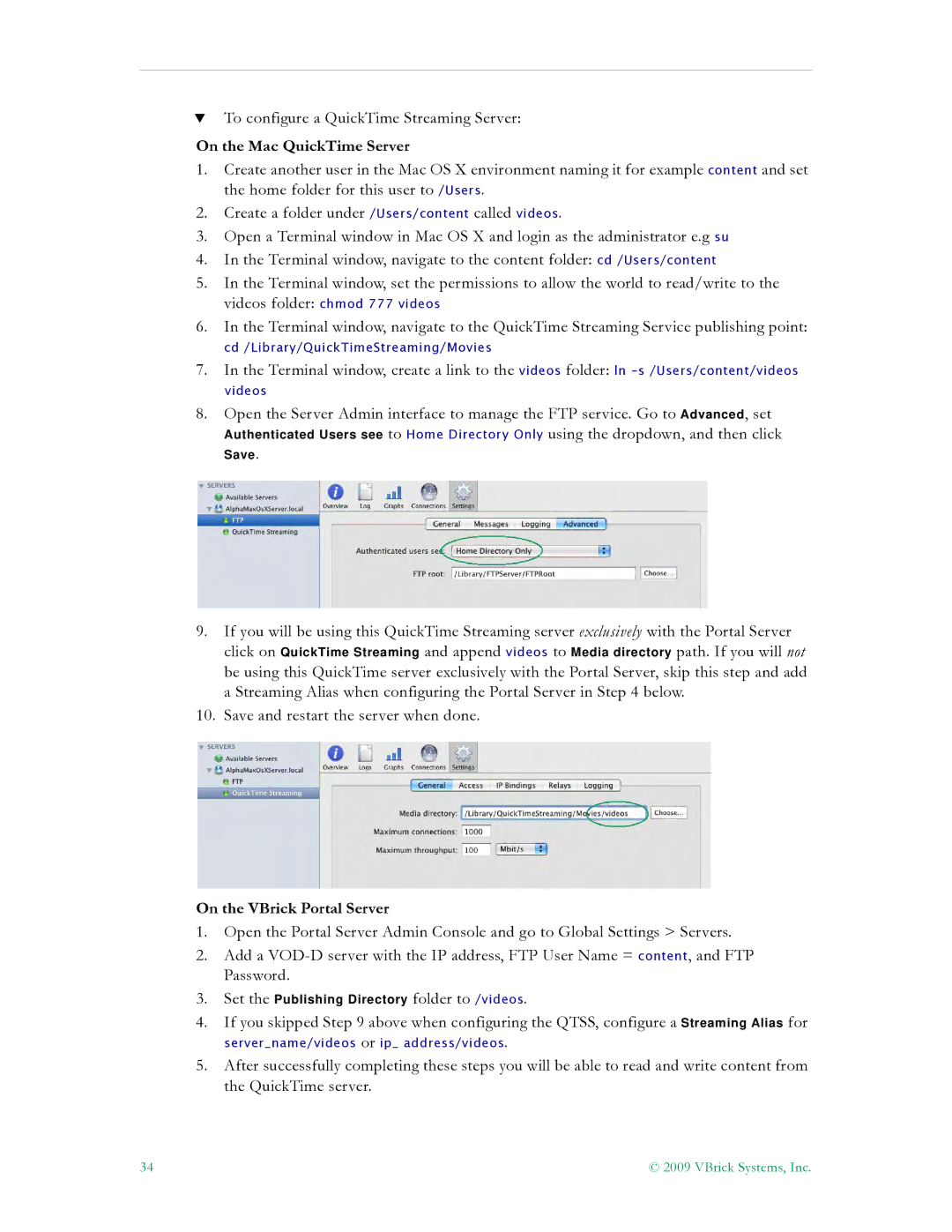
TTo configure a QuickTime Streaming Server:
On the Mac QuickTime Server
1.Create another user in the Mac OS X environment naming it for example content and set the home folder for this user to /Users.
2.Create a folder under /Users/content called videos.
3.Open a Terminal window in Mac OS X and login as the administrator e.g su
4.In the Terminal window, navigate to the content folder: cd /Users/content
5.In the Terminal window, set the permissions to allow the world to read/write to the
videos folder: chmod 777 videos
6.In the Terminal window, navigate to the QuickTime Streaming Service publishing point:
cd /Library/QuickTimeStreaming/Movies
7.In the Terminal window, create a link to the videos folder: ln
videos
8. Open the Server Admin interface to manage the FTP service. Go to Advanced, set Authenticated Users see to Home Directory Only using the dropdown, and then click
Save.
9.If you will be using this QuickTime Streaming server exclusively with the Portal Server click on QuickTime Streaming and append videos to Media directory path. If you will not be using this QuickTime server exclusively with the Portal Server, skip this step and add a Streaming Alias when configuring the Portal Server in Step 4 below.
10.Save and restart the server when done.
On the VBrick Portal Server
1.Open the Portal Server Admin Console and go to Global Settings > Servers.
2.Add a
3.Set the Publishing Directory folder to /videos.
4.If you skipped Step 9 above when configuring the QTSS, configure a Streaming Alias for
server_name/videos or ip_ address/videos.
5.After successfully completing these steps you will be able to read and write content from the QuickTime server.
34 | © 2009 VBrick Systems, Inc. |
